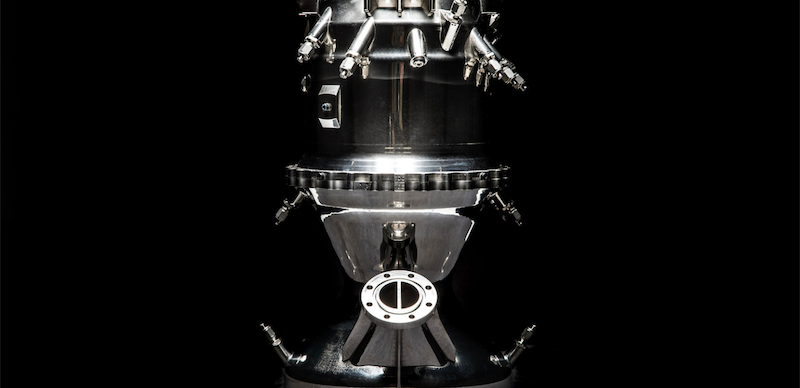Relativity, a California-based autonomous rocket factory, appointed three aerospace veterans to its executive team and also secured a patent for its Stargate metal 3D printer, it announced in a press release.
Stargate, a large-scale printer, uses machine learning to enable adaptive control of 3D printing processes in real-time. By harnessing this, the company is on track to launch the world’s first completely 3D printed rocket, Terran 1, by 2020.
Joining Relativity as a distinguished engineer is rocket development expert Tim Buzza. Josh Brost, a nine-year veteran at SpaceX is coming on as the vice president of government business development and David Giger, a 13-year veteran at SpaceX, will be the vice president of launch vehicle development for Terran.
“Our progress towards launching the first 3D printed rocket is fueled by a deeply experienced team that has built and scaled other space companies, and Tim, Josh, and David are renowned leaders in their fields,” said Relativity CEO Tim Ellis. “These executive appointments, combined with our recent patent grant, are great indicators of Relativity’s market momentum.”
Stargate Metal 3D Printer to Print Rocket by 2020
Relativity hopes to disrupt the aerospace industry with the development of its next-generation rocket. The company says it’s the first and only factory to use 3D printing and machine learning in every single aspect of the manufacturing process.
Its 3D metal printing technology, which uses advanced sensors and control software, received the patent titled: Real-time adaptive control of additive manufacturing processes using machine learning.
Relativity claims that this metal 3D printing technology can print the Terran 1 rocket in just 60 days. Comparatively, a traditional rocket takes up to 18 months to produce. The company adds that the Terran 1 rocket has 100X fewer parts than a traditional rocket, which allows for faster manufacturing speeds.
“The grant of this patent is a recognition of how our autonomous 3D metal printing technology can quickly and iteratively optimize rocket production on Earth and other planets, and is a pivotal step towards our technology differentiation and leadership in the market,” said Relativity CTO Jordan Noone.
By the end of 2020, Relativity plans to have conducted a full orbital launch. Furthermore, the company continues to grow and will expand its infrastructure this year for its operations, production, testing, and launch facilities to over 240,000 square feet.
To read more about Relativity, check out how the company managed to raise $35 million to get 3D printed rockets off the launchpad.
Source: Press release

License: The text of "US Rocket Factory Relativity Receives 3D Printing Metal Technology Patent" by All3DP is licensed under a Creative Commons Attribution 4.0 International License.